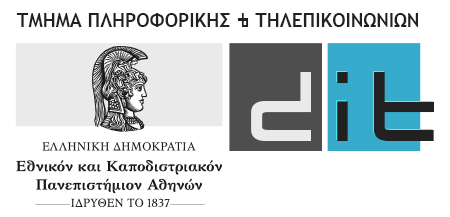Dear Deep Learning, Computer Vision and Autonomous Systems engineers, scientists, and enthusiasts,
you are welcomed to register to the 2022 Summer e-School on Deep Learning and Computer Vision:
https://icarus.csd.auth.gr/aiia-summer-school-2022
It will take place on 22-26/08/2022 and will be hosted by the Artificial Intelligence and Information Analysis (AIIA) Lab, Aristotle University of Thessaloniki (AUTH), Thessaloniki, Greece.
The summer e-school consists of two short e-courses:
a) ‘Short Course on Deep Learning and Computer Vision 2022’, 22-23rd August 2022, having focus on Computer Vision and Deep Learning for autonomous drones, cars and marine vessels:
http://icarus.csd.auth.gr/cvml-short-course-on-deep-learning-and-computer-vision-2022/
b) ‘Programming short course and workshop on Deep Learning and Computer Vision 2022’, 24-26th August 2022, with applications in digital media and autonomous drones:
You can follow the above-mentioned links for registration on either or both e-courses.
For questions, please contact: Ioanna Koroni <koroniioanna csd [dot] auth [dot] gr>
csd [dot] auth [dot] gr>
The first e-course contains 14 live lectures providing an in-depth presentation of computer vision and deep learning problems algorithms with applications on autonomous drones, cars and marine vessels (to be recorded).
The second programming short e-course and workshop offers a mix of live lectures and programming workshops (hands-on lab exercises).
It aims at developing registrants’ programming skills for Deep Learning and Computer Vision, with focus on drone imaging/cinematography and digital media applications.
Both short e-courses are organized by Prof. I. Pitas, IEEE and EURASIP fellow, He is chair of the International AI Doctoral Academy (AIDA), AUTH prime investigation for H2020 projects AerialCore and AI4Media,
and Director of the Artificial Intelligence and Information analysis Lab (AIIA Lab), Aristotle University of Thessaloniki, Greece. He was Chair of the IEEE SPS Autonomous Systems Initiative and
Coordinator of the European Horizon2020 R&D project Multidrone. He is ranked 319 top Computer Science and Electronics Scientist internationally by research.com (202).
Aristotle University of Thessaloniki is the biggest University in Greece and in SE Europe. It is highly ranked internationally.
Relevant links:
- European Horizon2020 R&D projects Aerial-Core: https://aerial-core.eu/, Multidrone: https://multidrone.eu/, AI4Media: https://ai4media.eu/
- AIIA Lab: http://www.aiia.csd.auth.gr/
- Prof. I. Pitas: https://scholar.google.gr/citations?user=lWmGADwAAAAJ&hl=el
Course descriptions
a) ‘Short Course on Deep Learning and Computer Vision 2022’, 22-23rd August 2022.
http://icarus.csd.auth.gr/cvml-short-course-on-deep-learning-and-computer-vision-2022/
Part A (7 hours), Computer vision topic list
- Introduction to autonomous systems
- Camera geometry
- Stereo and Multiview imaging
- Introduction to multiple drone systems
- Simultaneous Localization and Mapping
- Drone mission planning and control
- Introduction to autonomous marine vehicles
Part B (7 hours) Deep learning topic list
- Multilayer perceptron. Backpropagation
- Deep neural networks. Convolutional NNs - Transformers
- Deep object detection
- 2D Visual Object Tracking
- Neural Slam
- CVML Software development tools
- Applications in car vision
b) ‘Programming short course and workshop on Deep Learning and Computer Vision 2022’, 24-26th August 2022.
Part A (8 hours), Deep learning and GPU programming sample topic list
- Introduction to autonomous systems
- Deep neural networks. Convolutional NNs
- Parallel GPU and multi-core CPU architectures – GPU programming
- Image classification with CNNs.
- CUDA programming
Part B (8 hours), Deep Learning for Computer Vision sample topic list
- Deep learning for object/face detection
- 2D object tracking
- PyTorch: Understand the core functionalities of an object detector. Training and deployment.
- OpenCV programming for object tracking
Part C (8 hours), Autonomous UAV cinematography sample topic list
- Video summarization
- UAV cinematography
- Video summarization with Pytorch
- Drone cinematography with Airsim
Sincerely yours
Prof. I. Pitas
